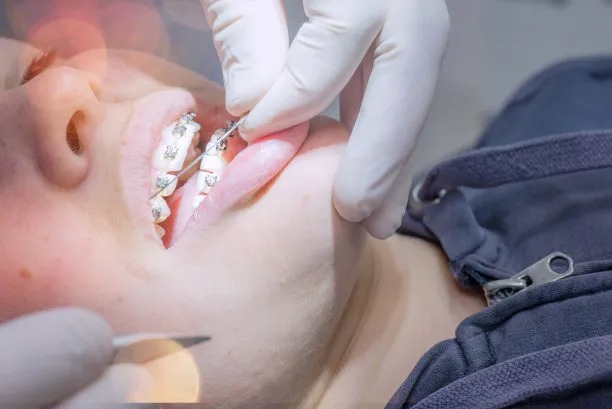Summary: Having a dental filling is a common yet significant dental procedure that can enhance oral health. However, ensuring a successful experience requires careful preparation and awareness of essential precautions. This article outlines four critical areas to consider: the choice of dental materials, understanding post-filling care, regular dental visits, and maintaining a balanced diet. Each section emphasizes the importance of being proactive in both the filling process and ongoing oral health maintenance. Through these insights, patients can significantly reduce discomfort and complications while ensuring longevity and effectiveness of their fillings.
1. Choose the Right Dental Materials

The type of material chosen for your dental filling is fundamental to its success and longevity. Traditionally, amalgam fillings were popular for their strength and durability, especially in molars. However, composite resins, which match the natural color of teeth, have gained favor for aesthetic reasons in visible areas.
When consulting with your dentist, inquire about the different types of materials available, including their advantages and potential drawbacks. Understanding their properties can help you make an informed decision. For instance, while composite fillings may require more frequent replacements, their cosmetic appeal is unquestionable.
Moreover, be sure to discuss any allergies or sensitivities you might have to certain materials. Your dental professional can recommend the most suitable filling type based on your medical history, ensuring both safety and comfort during the procedure.
2. Understand Post-Filling Care
After a dental filling procedure, proper care is vital for your recovery and the longevity of the filling. To minimize discomfort, it’s advisable to avoid extremely hot or cold foods and drinks for the first 24 hours. This sensitivity can be common after the anesthetic wears off, so give your mouth time to adjust.
Additionally, practicing good oral hygiene is critical post-filling. Brush your teeth gently and continue to floss, but be cautious around the filled area until your dentist clears you for normal dental care. This vigilance helps avoid plaque buildup that can lead to further decay.
It’s also wise to schedule a follow-up appointment if you experience prolonged discomfort or sensitivity. Early intervention can prevent complications and ensure your filling remains intact. Always communicate any unusual sensations to your dentist promptly.
3. Maintain Regular Dental Visits
Regular dental check-ups play an integral role in maintaining optimal oral health and monitoring the condition of fillings. Dentists conduct thorough examinations to assess not only the integrity of existing fillings but also the overall health of your teeth and gums.
During these visits, your dentist can catch potential issues early, such as decay that might arise around the filling. Early detection is essential, as it allows for timely interventions before a minor problem escalates into a significant concern. Your dental professional may recommend a cleaning schedule based on your oral hygiene habits and risk factors.
Moreover, professional cleanings remove tartar and plaque that at-home brushing might miss. This proactive care is essential in prolonging the life of your dental fillings and overall oral health. Aim for at least biannual visits, or more frequently if your dentist suggests it.
4. Adopt a Balanced Diet for Oral Health
Your dietary choices have a profound impact on oral health and the longevity of dental fillings. A balanced diet rich in vitamins and minerals can strengthen your enamel, making your teeth more resilient against decay. Foods high in calcium and phosphorus, such as dairy products and leafy greens, are particularly beneficial.
On the other hand, minimizing your consumption of sugary snacks and beverages can reduce the risk of decay, especially around the fillings. Sugars provide fuel for harmful bacteria that can lead to dental issues. Opt for healthier snacks like nuts or fruits that aid in saliva production, helping cleanse your mouth after meals.
Staying hydrated is another significant factor; water helps wash away food particles and bacteria, making it easier for your mouth to maintain a healthy environment. Combining a healthy diet with diligent oral care practices will significantly contribute to your overall dental health and the durability of your fillings.
Summary:
This article highlights the critical precautions necessary for a successful dental filling experience and optimal oral health maintenance. By choosing the right materials, understanding post-care, attending regular dental visits, and adhering to a balanced diet, patients can ensure both effective fillings and lasting dental health.
This article is compiled by Vickong Dental and the content is for reference only.
Vickong Dental
Vickong Dental is a large medical group established in Hong Kong in 2008 by professors from well-known medical universities in Guangdong and Hong Kong, as well as medical doctors from key national '985' universities (including Master's supervisors and senior professors). The chain of branches brings together expert dentists with PhDs and Master's degrees from Hong Kong and Mainland China, committed to providing high-quality dental treatment.
"Vickong Dental Practices the University Motto of 'Healing and Serving Society,' with a Stable Operation for Sixteen Years. It Has Been honored with Hong Kong Enterprise Leaders's Choice,' and is a Global Trusted Implant Center for the Nobel Implant System. Recommended by Hong Kong Metro Broadcast and Guangdong Television, it Serves Customers from Over Thirty Countries and Regions, Gaining the Trust and Favor of Citizens from the Guangdong-Hong Kong-Macau Greater Bay Area and Surrounding Cities.

Thousands of customers' unanimous praise
The most recognized and highly recommended dental service by customers in the Guangdong-Hong Kong-Macau Greater Bay Area
We Ensure You Receive Detailed Care and Attention Here
Hong Kong standards, Shenzhen prices, Your Trusted English-speaking dentists

Vickong Dental Medical-Grade Instrument Disinfection Process
Vickong Dental Medical-Grade Instrument Disinfection Process

Vickong Dental Chain: A Warm and Comfortable Environment for Treatment






Appointment Hours

Q&A
Why choose Vickong Dental?
Vickong Dental practices the university motto 「Medicine to Benefit Society」, with each branch bringing together highly qualified dentists with doctoral and master’s degrees from Hong Kong and the Mainland, and has maintained seventeen years of steady operation。Recipient of 「2024 Hong Kong Enterprise Leaders Brand」, 「2025 Hong Kong Enterprise Leaders Brand」, a Nobel Biocare Global Trusted Implant Center, and a brand recommended by Metro Radio Hong Kong and Guangdong TV。
To date, we have served customers from more than thirty countries and regions,earning exceptionally high word-of-mouth recognition and trusted recommendations from residents across the Guangdong-Hong Kong-Macao Greater Bay Area and surrounding cities
We have eight major branches in Zhuhai、Shenzhen,and a consultation and service assurance center in Hong Kong,so you can book a free consultation at any time for any questions,which is very reassuring.
If I do not accept the quotation after the CT scan, will I be charged??
No! As long as the actual treatment has not started, you will not be charged any fees.
Will there be any additional charges during the treatment process?
No, there won’t be any additional charges. Before treatment begins, we will clearly explain the treatment plan and its corresponding fees. Only after the patient agrees and signs the consent form will we proceed with the dental service.
Can I pay in Hong Kong dollars?
Yes. Vickong Dental accepts payment in Hong Kong dollars. The amount will be converted based on the exchange rate of the day, and the applicable rate will be clearly communicated to you in advance.
Can I reschedule my appointment at any time?
Yes. Please contact us via **WeChat** or **WhatsApp** as early as possible, providing your original appointment time and details, along with your preferred new date and time slot for rescheduling.













